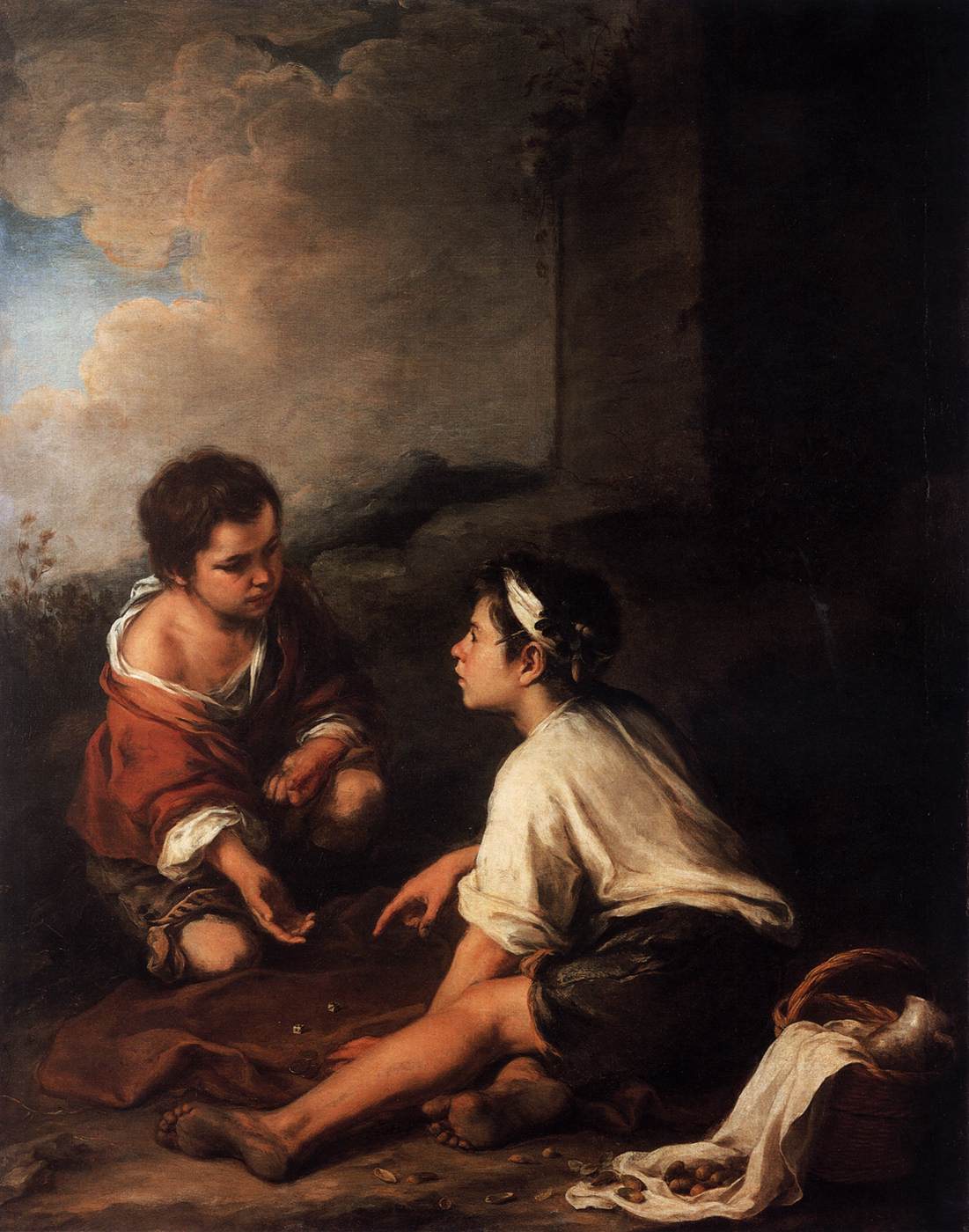Description
Bartolomé Esteban Murillo's painting Two Boys Playing Dice is a masterpiece of Spanish Baroque art that has captivated viewers since its creation in the 17th century. This artwork is a representation of two children playing dice on a street in Seville, Spain.
Murillo's artistic style is characterized by his ability to capture the essence of everyday life, and this painting is no exception. The children are realistically depicted, with gestures and postures suggesting movement and emotion. Light and shadow are masterfully used to create a sense of depth and three-dimensionality in the work.
The composition of the painting is also very interesting. The children are located in the center of the image, while the background is occupied by a street and some buildings. The perspective used by Murillo makes viewers feel like they are viewing the scene from an elevated position, giving a feeling of spaciousness and space.
The color used in the painting is another notable aspect. The warm, earthy tones of the children's clothing contrast with the cool, gray tones of the background, creating a sense of vibrance and movement. In addition, the coloring of the children's clothing is representative of the era in which the painting was created, which adds historical value to the work.
The story behind the painting is also interesting. It is believed that Murillo painted this work for a client who wanted to decorate his house with scenes of everyday life. The painting was very popular in its day and has been recognized as one of Murillo's best works.
Finally, a little known aspect about this painting is that it was stolen in 1810 during the French invasion of Spain and taken to France. However, it was returned to Spain in 1815 and is currently in the Prado Museum in Madrid, where it continues to be one of the most admired works by visitors.
In short, the painting Two Boys Playing Dice by Bartolomé Esteban Murillo is a masterpiece of Spanish Baroque art that stands out for its artistic style, composition, color, and historical value. In addition, its history and its current location in the Prado Museum make it a work of art of great cultural importance.

